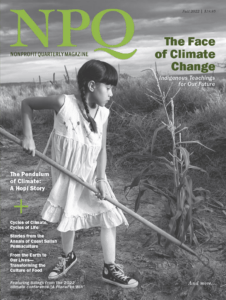
February 27, 2017; Washington Post
As the Washington Post claimed on Monday, “We’re in a very strange place for the science world right now.” A discipline often characterized by its nonpartisan devotion to just-the-facts-ma’am public interaction is being shoved onto one side of the political spectrum. Scientists have long feared that public advocacy could damage their credibility, but a recent study from the journal Environmental Communication says they may have nothing to worry about.
This isn’t because people don’t view scientific conclusions through an emotional partisan lens. The opposite is true: The lens is already there, and advocacy makes little difference. For example, the upcoming March for Science planned for April 22nd has an official nonpartisan stance, but it will surely be seen as anti-Trump and anti-Republican. As the Post explained, “People are likely to interpret the march through the lenses of their prior biases, and the biases of the media that they’re already accustomed to consuming. Just like everything else in American political life.” People who support the March and the science it stands for will not think less of the participating scientists for being there, and people who oppose the March didn’t think much of those scientists in the first place, according to the study results.
Scientific advocacy takes two forms, according to Steve Pierson, Director of Science Policy at the American Statistical Association.
Policy for science relates to…advocating on behalf of [scientists’] interests. This has ranged from supporting robust budgets for science research funding…to promoting professional development for K–12 statistics teachers and advocating for policies facilitating the participation of federal scientists in professional society leadership and governance.
Science for policy seeks to inform policymakers about the relevant science on an issue they are considering…informing Congress of statistical perspectives on climate change, advocating forensic science reform, [etc.]. One dimension of science advocacy in science for policy is how active a particular policy is promoted. Susan Solomon, lead author of the fourth report of the Intergovernmental Panel on Climate Change addressed this dimension by distinguishing between “policy-prescriptive statements” and “policy-relevant statements.”
Sign up for our free newsletters
Subscribe to NPQ's newsletters to have our top stories delivered directly to your inbox.
By signing up, you agree to our privacy policy and terms of use, and to receive messages from NPQ and our partners.
Scientists who stick to policy-relevant statements and policy for science refrain from lobbying for, say, carbon taxes, alternative energy, farming subsidy reform, and other policies whose justifications are scientific but whose implementation has economic and other consequences. The academic community has high standards for credibility and professionalism, which include a disinterested presentation of the facts.
However, some research even suggests that this may not be completely possible. David Ropiek, a former instructor at the Harvard T.H. Chan School for Public Health, explained:
Various findings from cognitive science teach that facts, alone, are meaningless, in the purest sense of that word. As neuroscientist Antonio Damasio writes in Descartes Error, facts only have meaning when we sense how we feel about them. Psychologists Melissa Finucane and Paul Slovic note that our judgments and behaviors are guided by what they call the Affect Heuristic, a combination of what we know, and how we feel.
Facts, after all, are simply “institutionally validated claims about the world,” according to William A. Gamson of Boston College. If a reader does not assign credibility to an institution, then the facts it validates don’t have any credibility, either. The Catholic Church used to be an institution with the power to determine which facts about the world were true; today, we assign that power to research institutions and the government agencies they inform, and the fact of the planet’s shape changed with that shift.
This balance of interests in their work can put scientists and public institutions in a delicate position. If the public puts its faith (and its tax dollars) in research institutions to validate claims about the world, then it is the institution’s responsibility to use that faith and the power it confers in the public interest. However, public interest can be broadly defined, and it’s important to distinguish fact-finding bodies from interest groups, if only because the persuasive power of scientists’ recommendations relies in part on their political disinterest.
The new research from Environmental Communication specifically examined a climate scientist speaking directly to the public, rather than a scientific community speaking through media outlets that undoubtedly add their own perspective. Nevertheless, it brings a message from the public: Scientists, speak up!—Erin Rubin













